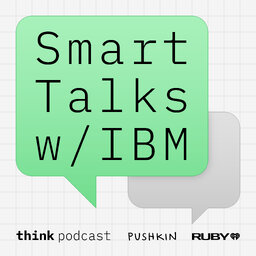Windows 7 Overview
In this listener-inspired episode of TechStuff, Jonathan and Chris discuss and share their observations about Microsoft's new operating system, Windows 7.
Learn more about your ad-choices at https://www.iheartpodcastnetwork.com
In 1 playlist(s)
TechStuff
TechStuff is getting a system update. Everything you love about TechStuff now twice the bandwidth wi…Social links
Follow podcast
Recent clips

TechSupport: What Happens When AI Undresses You?
25:58

The Story: How Science Fiction Changes the Real World
30:44

NASA and AI: Decoding Our Universe
33:53
 TechStuff
TechStuff